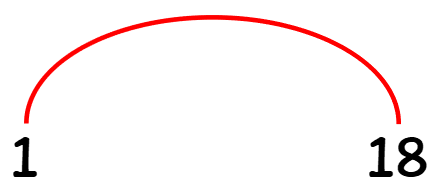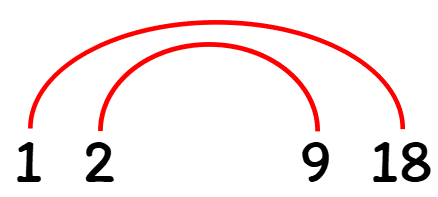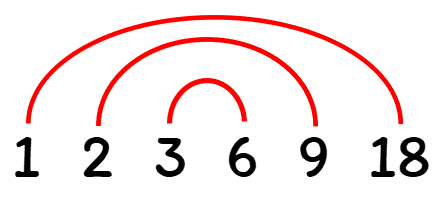Multiples and Factors
http://mrsrclassroom.weebly.com/factors-and-multiples.html
Finding Factors using a factor rainbow
https://www.chilimath.com/lessons/introductory-algebra/finding-all-the-factors-of-a-whole-number-using-the-rainbow-method/
Step 1: The first number that you with is 1. 1 will ALWAYS be a factor of any number and its pair will ALWAYS be the number itself. You write the two numbers with a space between them.

Step 2: Then you move onto the next number which is 2. If 2 can go into the number evenly then it is a factor. You then find its pairing and write the pairings, again leaving a space in between them.

Step 3: You move onto 3. If 3 can go into the number evenly then it is a factor. You then find its pairing and write the pairings, again leaving a space in between them.

Step 4: You then keep moving on to the next number. If the next number does not go into your chosen number evenly then it is not a factor so you move on to the next number.
Step 5: You stop when the next number on your list already has a pair in your rainbow. You have now found all the factors for your number.

All the factors of 18 are: 1, 2, 3, 6, 9 and 18
Lowest Common Multiple
Lowest Common Multiple (LCM): when 2 sets of numbers are being compared, this is the lowest multiple both numbers have in common.
For example: The Lowest Common Multiple of 2 and 3 is 6:
- Multiples of 2: 2, 4, 6, 8, 10, 12, 14, 18
- Multiples of 3: 3, 6, 9, 12, 15, 18
Greatest Common Factor
Greatest Common Factor (GCF): when two sets of numbers are being compared, this is the greatest factor both numbers have in common.
For example: The Greatest common factor of 12 and 18 is 6:
- Factors of 12: 1, 2, 3, 4, 6, 12
- Factors of 18: 1, 2, 3, 6, 9, 18

Comments
Post a Comment